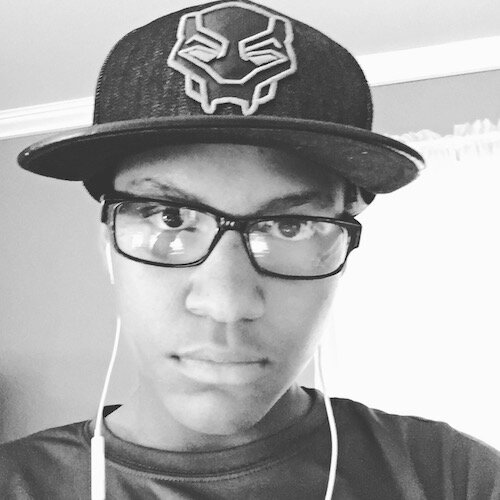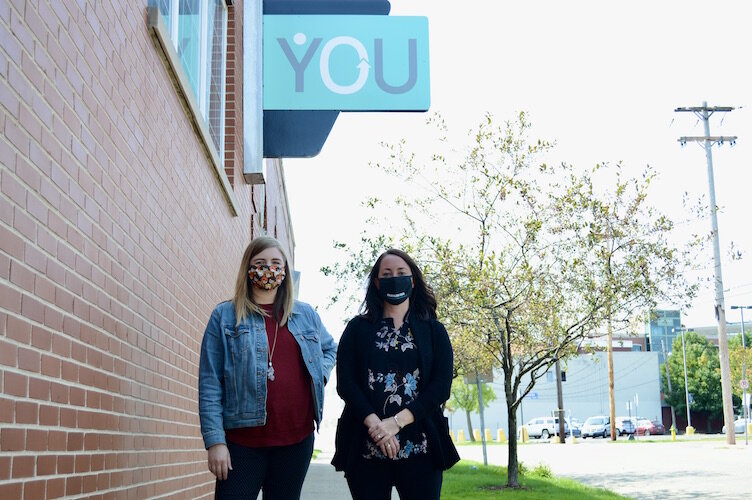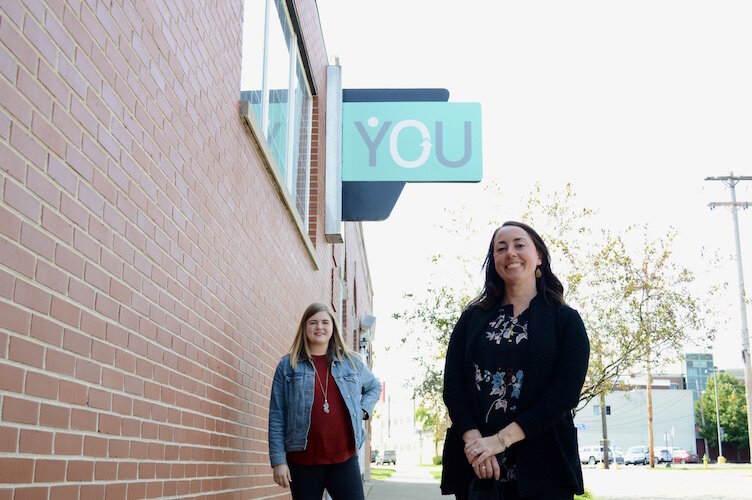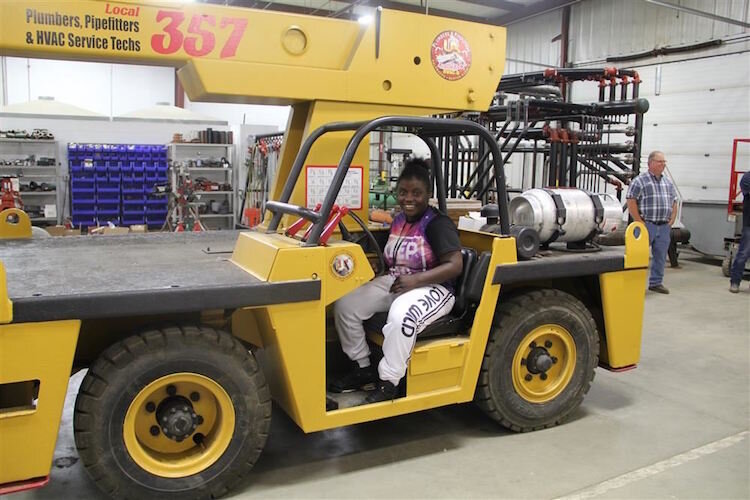Students learn the skills employers want in the YOU MyCity Program
YOU MyCity summer program where students learn about life in the real world of work makes adjustments for COVID-19 realities.
The common image of today’s youth is that they live online. They can TikTok and Fortnite and Insta like nobody’s business.
But can they write a professional email? Send messages with full sentences, no emojis? Or communicate 20th century-style with a telephone, or leave a professional-sounding voicemail?
Donovan Wilson, a junior at Loy Norrix, says there are things that high school just doesn’t teach. So he enrolled in YOU’s MyCITY program earlier this year.

At the start of the summer, Wilson wanted to become a video game designer, “but I’m starting to lean more into video production,” he says.
He joined the YOU (Youth Opportunities Unlimited) program “to prepare myself to get an actual job, so I mainly use the resources they gave us, like how to behave in an interview or what should you wear, how to treat your coworkers.”
Wilson learned to email like a pro, leave voicemail, “the simple stuff that people look for in the workplace.” He also learned “how to work with groups — when I first entered the program, I was a more to-myself kind of person. But after it, I can say I’m a lot more social because of the group work that we had to do together. That was a big part of the YOU program.”
But due to COVID-19, group work, and everything else had to be done virtually. Wilson can deal with the technology, but he’d rather things be done in-person, he says.
“Currently school is virtual, and it’s not really for me. I prefer classroom settings.” During this summer’s virtual MyCITY, “I kind of had the same issue. I just like being in-person more. I have a better connection with people when I can communicate in-person with them.”
Otherwise, Wilson thinks the program is valuable for youth thinking of what’s beyond high school. “Because schools aren’t going to teach us the things that YOU can provide us. It’ll prepare you for the real world.”
YOU in 1961, in 2020
YOU began as a Kalamazoo nonprofit in 1961, “started by a group of concerned citizens who recognized the fact that there were a lot of young people in the community who were dropping out of high school, and often they were dropping out to go to work,” says Paige Daniels, current YOU director.
The goal then was to provide services to prevent dropouts, while bridging the gap between education and employment.
Over the following decades, YOU has expanded. Now it is part of KRESA (Kalamazoo Regional Educational Service Agency). Today, YOU serves Kalamazoo, Branch, Calhoun, and St. Joseph counties. It has also partnered with Michigan Works! Southwest, providing employability training and other services for adults as well as youth.
In the past couple of years, they underwent some rebranding, with emphasis on the YOU more than “youth,” Daniels says. They now “operate beyond the youth population.”
Getting youth ready for the working world is still a foundational goal of YOU. MyCity is one of their largest programs, serving around 500 young people each summer in both Kalamazoo and Battle Creek, with a pilot program launched this year in Albion.
Where does YOU stand this year? “When we think of 2020, we think about it starting around March when all of a sudden our world as we know it took us home,” Daniels says.

YOU has never been “a work-from-home type of organization. Obviously, we’re very people-focused, and meeting the needs of people, getting to know them, and providing those supports. That’s most effectively done when you can meet with people in person and establish those relationships.”
Sending youth out to intern or meet with job coaches or potential mentors “wasn’t going to be an option” this year.
Starting from scratch
Molly Fitz Henry, job coach and manager of special initiatives, spearheaded an online MyCity Academy for this past summer.
They had to start from scratch, Henry says. “We took a couple of months to plan and prepare some employability skills training for participants.” Online, they “worked on group projects over the summer, so it was a huge range of providing career exploration, employability skills training, and the coaching that I think is a big huge piece of what we do year-round.”
They had “some good successes,” Henry says. As an example, she held up Wilson, whose project was a presentation on careers in the video game industry.
Online, young participants were able to “take a first step into their individual career pathway plans to get an idea of what work is about without actually being able to put them in internships like we usually would,“ Henry says.
But there was a “learning curve,” she says.
Daniels added that online challenges called for flexibility.
“Normally, if (program participants) are going to work at an internship with a partner employer, there’s so much emphasis around building skills like showing up on time and being there every day,” Daniels says.
But virtual work requires computer and internet access, something not all of their participants have at home.
“We had to recognize that we had to meet them where they were in terms of their accessibility with that technology. So all of those activities that Molly was telling you about that they were able to participate in, they were able to do that on their own schedule.”
Henry says, “The time-management piece was huge over the summer. The flexibility that was built into the program can allow people to procrastinate as well as get ahead of the ball. So we worked on improving those skills all summer, and I think we saw pretty good gains in that area.”
YOU has recently opened up for limited one-on-one meetings with participants. All who enter their buildings must go through a screening, get their temperature checked, and are asked if they have experienced any of a list of COVID symptoms.
For the fall, they hope to “start doing more live interactions, more coaching hours available for people, and continue with that same group that we had in the summer, into the fall,” Henry says. This will “prepare them for in-person work later on this year, crossing our fingers!”
Going virtual has opened MyCity to “lots of positive things that we have not explored in previous summers,” Henry says.
Their young participants have learned what we’ve all had to learn — be flexible and use what we have, to do as much as what we would usually do as we can.
Daniels says, “It’s funny to reflect back that my day is often filled with Zoom meetings, and I had never heard of Zoom prior to March!” She laughs.
“It’s kind of a silver lining for our participants,” Daniels adds, that they are able to build on virtual skills that have become a big part in not only the job world but in school.
“We easily consider them as more tech-savvy, or I do… but that’s more in the realm of social media. This gave them an opportunity to build those skills more in a somewhat of a professional sense, and be comfortable with technology, comfortable communicating over email. And that will serve them well moving forward,” Daniels says.

















